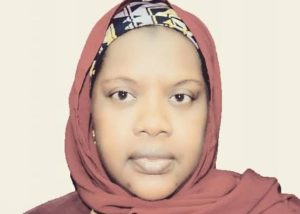
A stealthy threat lurks in the shadows, striking down men in their prime without warning. The disturbing reality in recent years is that a growing number of seemingly healthy and energetic men are collapsing unexpectedly during physical activities. This alarming phenomenon has become increasingly frequent, leaving despair, personal loss, and communal grief in its wake.
A haunting memory still lingers with me. My brother-in-law, a towering figure with a chiseled athletic build, was a basketball sensation who proudly represented our state and nation on the court. To all appearances, he embodied the picture of health, with his relentless passion for fitness evident in his rigorous evening training sessions.
Tragedy, however, struck on a fateful Thursday when he collapsed suddenly and inexplicably on the field while observing fasting, never to rise again.
Similarly, the tragic fate of Dr. Mahmoud Muhammad, a renowned medical director of IBB Specialist Hospital and permanent secretary in Niger State, sent shockwaves through the community. Haunting video footage captured him exuding vitality, effortlessly juggling a football on the pitch with the agility of a seasoned athlete. But in a heart-stopping instant, he crumpled to the ground, as if frozen in a fleeting moment of exhaustion, never to rise again.
Tragedy struck again, claiming the life of yet another vibrant young soul, El-Mu’az Muhammad Birniwa. While engaged in a game of football, he suddenly fell, never to regain his footing in this life.
The list of such heartbreaking incidents stretches on, leaving us with a disturbing mystery: What is the underlying cause of these inexplicable, sudden deaths?
As a Muslim, I believe in the immutable Qur’anic truth of “Kullu nafsin za’ikatul maut” – “every soul shall taste death,” and no one departs this world before their appointed time. Yet, our faith does not absolve us of the responsibility to care for our health. These devastating losses must serve as a wake-up call, especially to our men, who often neglect their health with reckless abandon, leaving behind shattered windows, orphans, and a trail of unfulfilled dreams.
We often acknowledge that death is an inevitable fate, predetermined to occur at its appointed time. Ironically, while we consciously strive to postpone or avoid it, our unconscious actions often seem to expedite its arrival.
We meticulously maintain our vehicles, ensuring they are roadworthy before embarking on journeys. We wouldn’t dare sleep on highways, aware of the potentially fatal consequences of such recklessness. Yet, paradoxically, many men neglect their own bodies, failing to provide them with the same diligent care, thereby unwittingly heading in the very direction they seek to avoid.
During my tenure at the social welfare office of the General Hospital in Suleja, I observed a striking disparity. Our office was adjacent to the hypertension clinic, where I initially noticed a predominance of female patients. This led me to assume that women were more susceptible to high blood pressure, borne from the cumulative stresses of marriage and motherhood.
However, as time passed, a clearer picture of the reality emerged. While women may be more likely to seek help, men simply suffer in silence, their stoic facade often proving fatal because they refused to prioritize their health. You can be a hero, but more importantly, be alive!
A harsh reality is that countless men see themselves as heroes who must remain strong, both physically and emotionally. The visibility of their vulnerabilities is taboo, so they must be masked as masculinity. Behind this façade of strength, they conceal their frailties, disregarding the warning signs from their bodies. With sheer determination, they push through sleep-deprived nights, attend every meeting, and participate in every social gathering, callously denying themselves the rest they so desperately need.
This constant self-denial is a perilous path. When a man’s life is tragically cut short, the world will pause for a brief, mournful moment. Tears will be shed, eulogies delivered, and moments of silence observed. Yet, all too soon, the rhythm of life will resume, and the cycle will repeat itself, claiming its next victim – another “hero” who silently suffered until the abrupt bitter end.
To our dear men: your families need you alive and healthy, not martyrs on the altar of overwork or negligence. Prioritise your health; it’s a gift to yourself and those who depend on you.
Begin by scheduling regular check-ups, whether at the hospital or in the comfort of your own home. Simple, accessible tools like automated blood pressure and sugar monitors can empower you with valuable insights into your health status, helping you make informed decisions before engaging in physically demanding activities.
While these tools can’t replace professional medical advice, they can serve as a vital early warning system, prompting you to seek guidance or simply take a well-deserved break. From my observations, men who live long lives often fall into two categories:
1. Those fortunate enough not to suffer from chronic illnesses like hypertension or diabetes – a blessing from God.
2. Those who discovered these conditions early, sought treatment, and adjusted their lifestyles accordingly.
A relative shared with me his father’s inspiring journey. Diagnosed with hypertension decades ago, he never missed a medication dose or checkup. Today, he’s over 90, a testament to vigilant care.
We don’t need you to be superheroes; we need you present, healthy, rested, and open about your struggles. Share your struggles with your wives, children, or trusted friends – they’re eager listeners who deeply care. Regular exercise is essential. Knowing and respecting your limits is equally vital. Listen to your body’s whispers and grant yourself rest when your body needs it most.
Life is a treasured gift, and your well-being is invaluable. Nurturing your health is not only a personal investment, but also a loving gesture to those who rely on you – your family, who cherish and depend on you. You may choose to be a hero, but more importantly, be alive!
* Mudi, a journalist and writer, lives in Suleja, Niger State. Email: mairommuhammad@gmail.com
